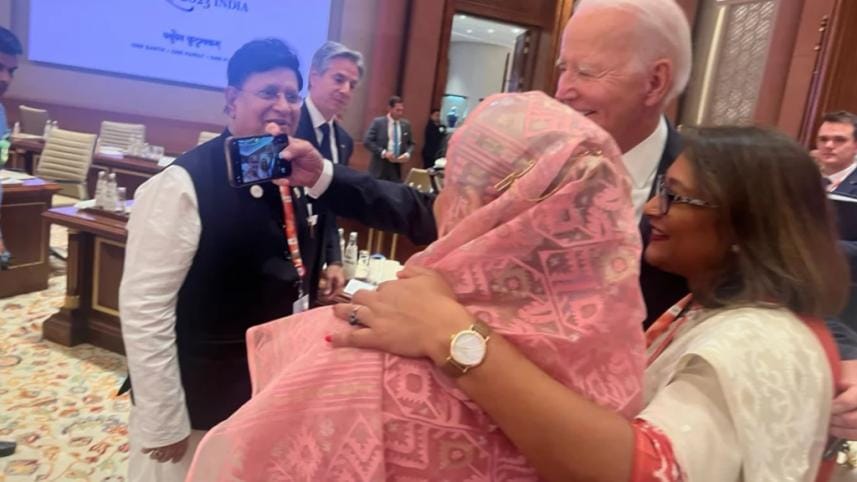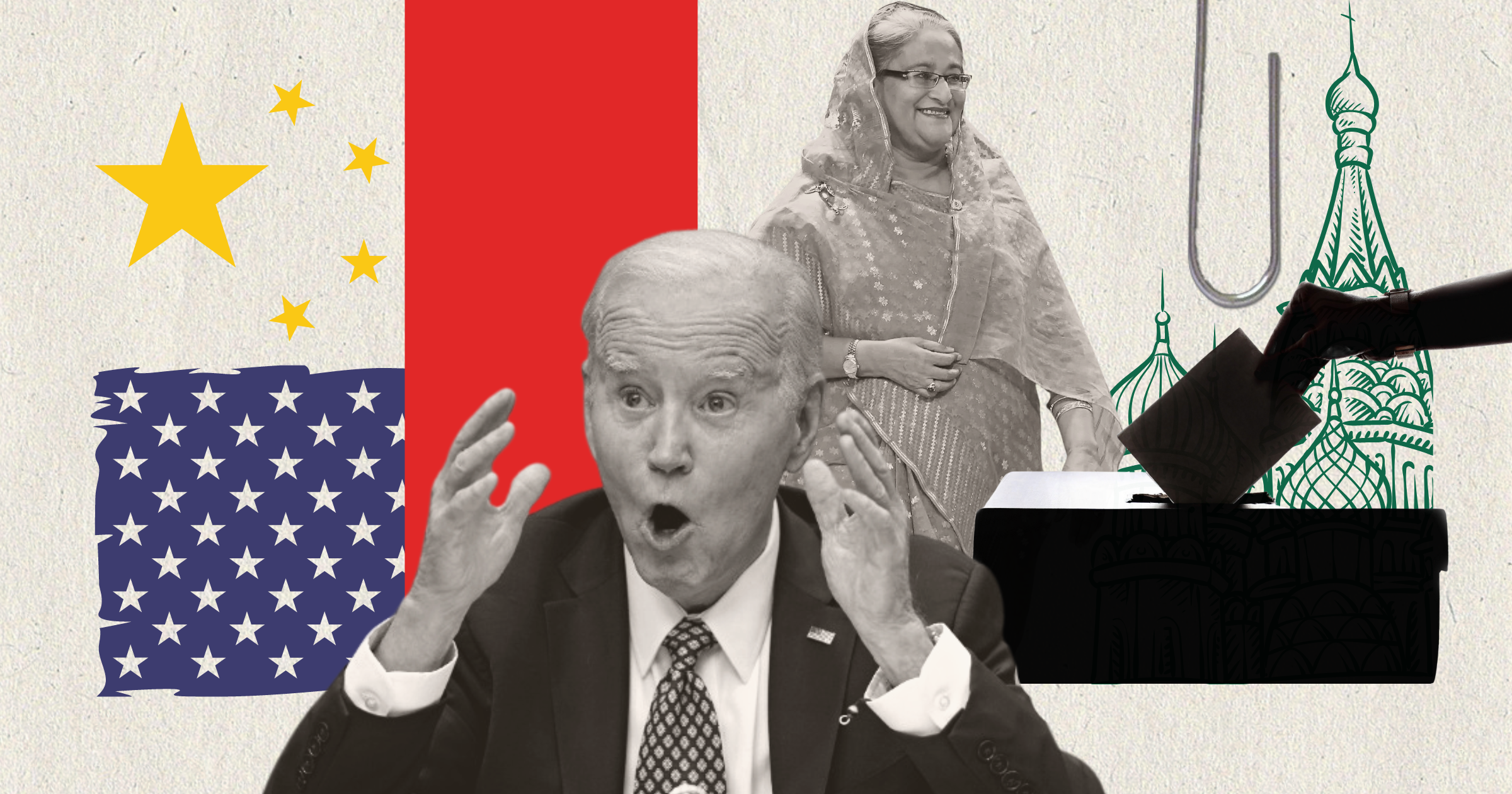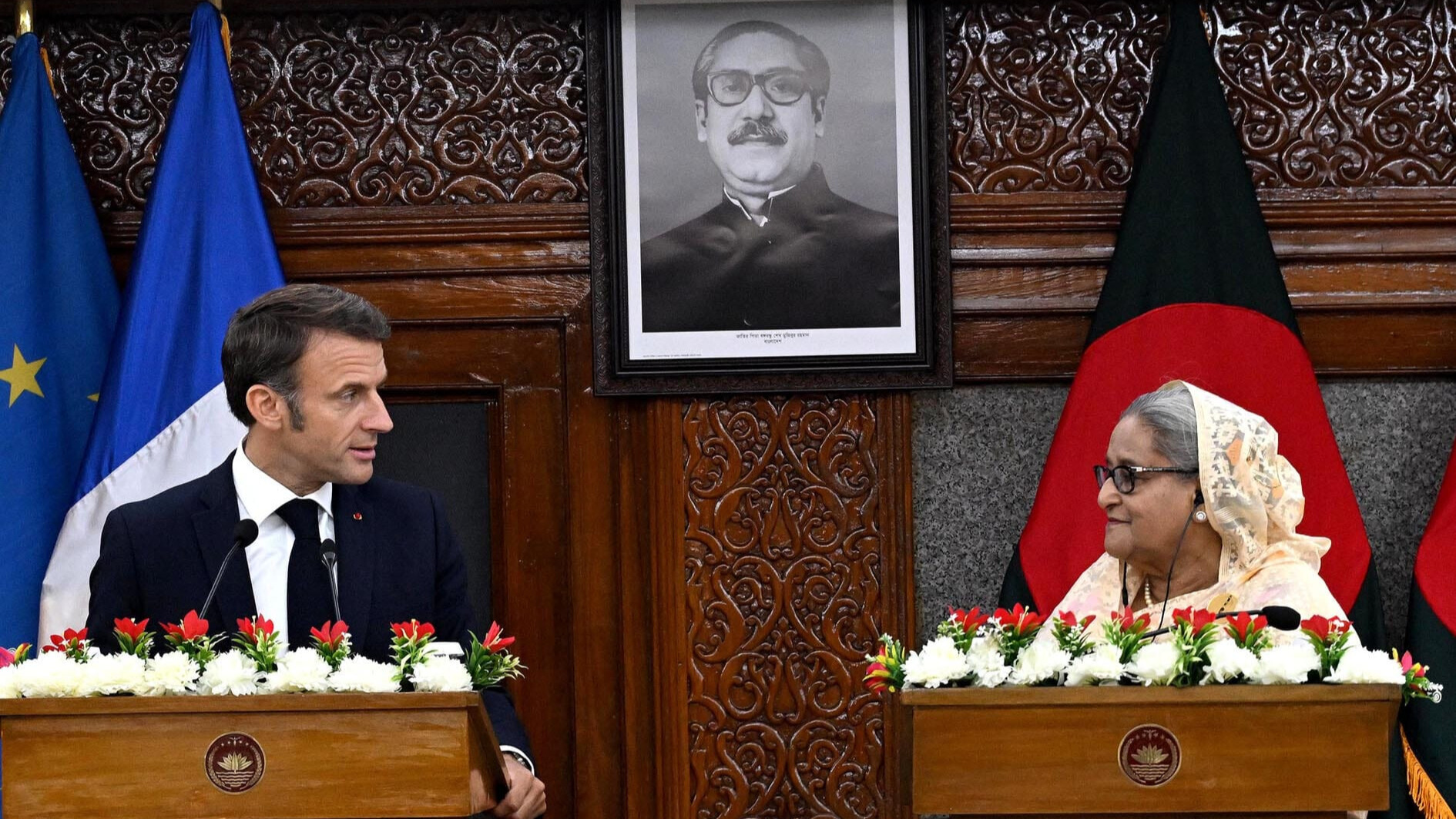A selfie, some visits, and a show of diplomacy

Diplomatically, this year has possibly been the most eventful in the history of Bangladesh. A number of top US officials visited the country over the past months. Our prime minister had a meeting with President Xi Jinping of China in South Africa during the BRICS summit. And then the Russian foreign minister, Sergei Lavrov, visited Bangladesh, followed soon after by the visit from French President Emmanuel Macron.
Lavrov is the first foreign minister of Russia to visit Bangladesh since Bangladesh's independence. The Russia-Ukraine war has led to a reorientation of the world order and the visit was part of his world tour to garner support, which was evident from the comment he made: "If we look at the situation and analyse it, we can clearly see that the US and its allies are truly trying to promote their interests in the region by using the so-called Indo-Pacific strategy. Their goal is clearly both to counter China and to isolate Russia in this region." It will be interesting to see how the ruling government manoeuvres itself amid the global cross-currents and conflicting spheres of influence.
After this visit, Prime Minister Sheikh Hasina went to India for the G20 summit, even though Bangladesh is not a member of the forum. There is no doubt that it is a matter of pride for the country to join the summit as a guest. Its political implications were substantial. The premier also met with her Indian counterpart, Narendra Modi, at his residence on the eve of the G20. Although there were no reports or mentions of the topic of their discussion, speculation has it that politics was very much on the agenda. Historically, Awami League has had a close relationship with New Delhi, regardless of the party in power, and India's predilection for AL is not a closely guarded secret either.
It is noteworthy that the PM visited India at a time when the ruling party is under pressure at home and abroad over the upcoming national election. While the western world is stressing on holding free and fair elections, India has refrained from expressing a concrete sentiment. The only comment from a spokesperson a month back did not indicate much either way, when he said it is the people of Bangladesh who will have to decide how the next national polls will be held. "Of course, we are closely monitoring [the situation in Bangladesh]. We have a High Commission there… We hope that there is peace and no violence and the elections are held as per plans."
But that aspect of Hasina's trip has been completely overshadowed by the much-publicised selfie with US President Joe Biden. Hasina had been critical of the US on several occasions, especially after the US put sanctions on some Rab personnel and restricted visas for those who undermine elections in Bangladesh. Taking the cue from their party leader, Awami League members had also been rather critical. But these very party members circulated the much-discussed selfie almost as soon as it was posted.
Understandably, the viral selfie was a matter of simple courtesy for the two leaders and is very unlikely to shift foreign policies. But the ruling party has garnered optimum mileage from this event. Many might say the photo signifies that as all is well between Bangladesh and the US.
Addressing his BNP counterpart, AL general secretary Obaidul Quader said that many BNP leaders had lost their sleep after seeing the selfie. In response, BNP's Mirza Fakhrul Islam Alamgir retorted, "I suggest [Quader] walk around with a photo of this selfie tied around his neck. It'll help you a lot to demonstrate that America's Biden is with you."
Things did not end here, as there was another photo of UK Prime Minister Rishi Sunak, down on one knee, speaking to his Bangladeshi counterpart on the sidelines of the G20 summit. This got a lot of attention on the internet as well, but again, it was mere courtesy of a young leader towards a senior stateswoman who has steered her country successfully for 15 years, reducing poverty and attaining sufficient growth to have it graduate into a developing country.
After that, French President Emmanuel Macron visited Bangladesh for 20 hours during which we committed to ordering 10 aircraft from Airbus, which is a major shift from Boeing's domination in Bangladesh. This is perhaps an attempt to make France more malleable to Awami League's cause, with the hope of softening an influential player of EU, also a UN Security Council member.
Ultimately, there were no expectations of great achievements from the sudden spurt of diplomacy. But there is no denying the political mileage that PM Hasina has garnered through the high-profile meetings and visits in the lead-up to the election, at a time when there were no hopes of any let-up in spiralling food prices, or a boost in exports leading to a rise in our foreign currency earnings. Nor is there any indication of an amicable end to this hostile political atmosphere, which would have been a welcome relief. That remains, as it always has, squarely dependent on how the parties play it out within our borders. Everything else is window dressing.
Mohammad Al-Masum Molla is chief reporter at The Daily Star.
Views expressed in this article are the author's own.
Follow The Daily Star Opinion on Facebook for the latest opinions, commentaries and analyses by experts and professionals. To contribute your article or letter to The Daily Star Opinion, see our guidelines for submission.




 For all latest news, follow The Daily Star's Google News channel.
For all latest news, follow The Daily Star's Google News channel. 


Comments